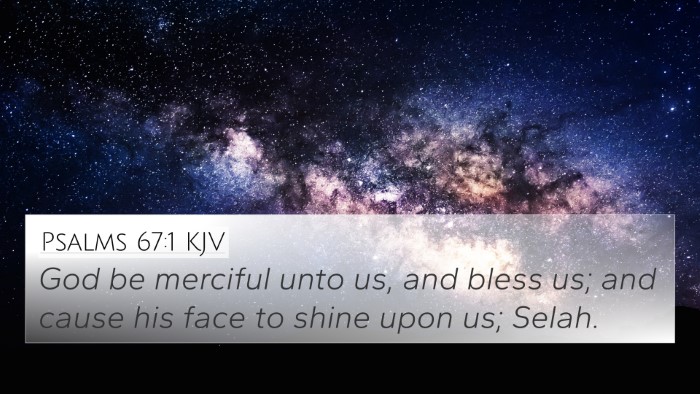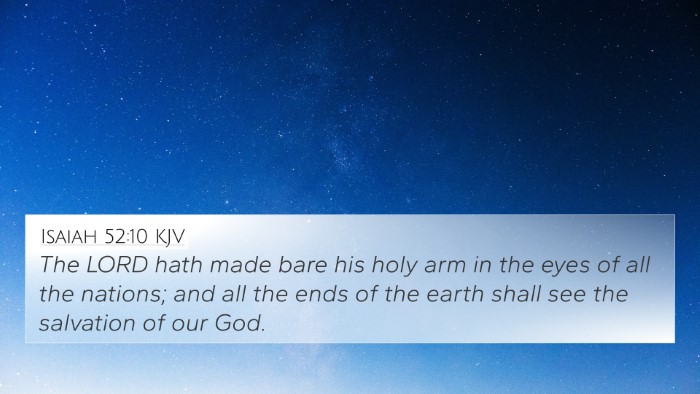Understanding Luke 2:10
Luke 2:10 states: "But the angel said to them, 'Do not be afraid. I bring you good news that will cause great joy for all the people.'" This verse is pivotal as it marks the announcement of Jesus' birth, a momentous occasion in Christian theology. In this understanding, we combine insights from public domain commentaries to explore its deeper meanings and connections.
Contextual Significance
The angel's message is significant for several reasons:
- Divine Announcement: The angel serves as a divine messenger, bringing news from God. This emphasizes the importance of the birth of Jesus as a fulfillment of prophecy and divine plan.
- Universal Message: The proclamation of great joy for all people highlights the inclusive nature of the Gospel. It transcends social, economic, and geographical boundaries, offering hope to everyone.
- Counter to Fear: "Do not be afraid" reassures the shepherds, indicating that the arrival of Christ is a positive event, contrary to the common fears associated with divine encounters.
Commentary Insights
Matthew Henry emphasizes the role of angels as messengers of hope and good tidings. He draws connections between the fear felt by the shepherds and the common biblical motif of fear when encountering the divine, illustrating how God's announcements often come to dispel fear rather than amplify it.
Albert Barnes notes the significance of the joy the angel declares, linking it to the overarching theme of salvation that permeates Scripture. He points out that this joy extends not only to the shepherds but to all humanity, representing a turning point in the relationship between God and man.
Adam Clarke elaborates on the phrase "good news," interpreting it as the Gospel, which fundamentally transforms the human condition. He highlights that the angel's proclamation directly connects to the themes found in the prophetic writings of the Old Testament, confirming the continuity of God's redemptive plan through Jesus.
Cross-References and Biblical Connections
To deepen our understanding of Luke 2:10, we explore several biblical cross-references:
- Isaiah 9:6-7: Prophecy of the coming Messiah as a source of peace and joy.
- Matthew 1:21: The announcement of Jesus’ name and its meaning—“He will save his people from their sins.”
- Luke 2:14: "Glory to God in the highest, and on earth peace among those with whom he is pleased," highlighting the joyful proclamation of Christ's birth.
- John 3:16: "For God so loved the world that he gave his only Son," reinforcing the theme of God’s love and joy for humanity.
- Acts 2:10: References to diverse groups receiving the message of salvation, mirroring the "all people" in Luke 2:10.
- Romans 1:16: "For I am not ashamed of the gospel, for it is the power of God for salvation to everyone who believes," emphasizing the universal nature of the Gospel message.
- Revelation 3:20: Christ’s invitation to a relationship represents the joy of acceptance into God's family.
Thematic Connections
Luke 2:10 encapsulates several themes essential to biblical theology:
- Joy: A recurring theme throughout the Bible, illustrated through various passages such as Psalms and the Pauline epistles.
- Salvation: The angel's announcement directly correlates with the broader biblical narrative of redemption offered through Christ.
- Incarnation: The fulfillment of God's promise through Jesus' birth signifies God's intimate involvement in human history.
- Peace: Linked with joy in the biblical narrative, as seen in the angels' subsequent proclamation in Luke 2:14.
Application in Study
For those engaging in bible cross-reference studies and searching for thematic connections, Luke 2:10 serves as a vital verse. Tools for bible cross-referencing such as concordances and reference guides can enhance understanding of how this verse correlates with others, providing a framework for deeper interpretative work.
For example, when conducting a comparative study of Pauline epistles, one might explore how the joy proclaimed in Luke resonates with the themes found in Philippians, where Paul often encourages rejoicing in the Lord. Similarly, examining connections between the Old Testament prophecies and the New Testament fulfillment illuminates the continuous thread of God's salvific work throughout scripture.
Conclusion
In summary, Luke 2:10 serves not only as a key verse announcing the birth of Jesus but also as a rich source for exploring thematic connections and cross-references within the Bible. The insights from various commentaries underscore its significance in the broader narrative of scripture, providing a well-rounded understanding of its implications for believers.


























